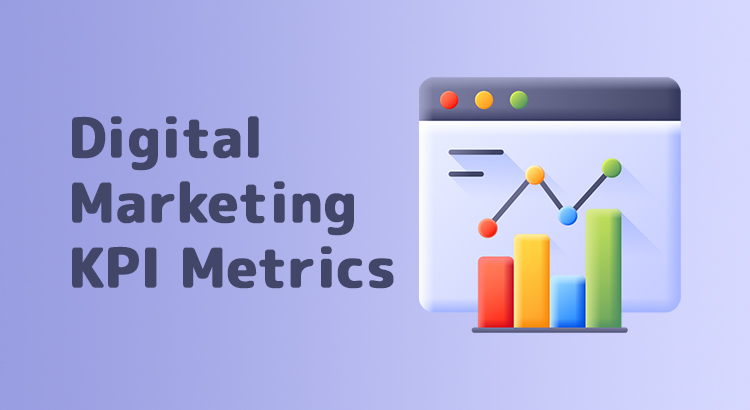The beginning of digital marketing has brought forth a wealth of data that can be harnessed to measure success objectively. This article delves into the top digital marketing KPI metrics that every business should track to ensure their efforts are yielding the desired results.
What Are Metrics in Digital Marketing?
Metrics in digital marketing are quantifiable data points used to evaluate the performance of marketing campaigns.
These digital marketing performance metrics serve as vital measurement tools, providing insights into the effectiveness of various marketing strategies and tactics.
10 KPIs for Digital Marketing
Here is the list of the top 10 Key Performance Indicators for digital marketing.
1. Website Traffic
The volume of visitors to your website serves as a fundamental metric in digital marketing. Analyzing website traffic enables businesses to assess the effectiveness of their online presence and identify areas for improvement.
2. Conversion Rate
Converting website visitors into customers is the ultimate goal of any digital marketing campaign. Measuring the conversion rate provides valuable insights into the efficiency of your sales funnel and the effectiveness of your marketing strategies.
Useful Article: Conversion Rate Optimization: Turning Clicks into Customers for Small Businesses
3. Cost Per Acquisition (CPA)
Understanding the cost incurred to acquire each customer is essential for evaluating the profitability of marketing campaigns. By calculating the CPA, businesses can optimize their advertising expenditure and maximize returns on investment.
4. Return on Investment (ROI)
ROI quantifies the profitability of marketing efforts by comparing the revenue generated against the total costs incurred. This online marketing metric provides a comprehensive overview of the financial performance of marketing campaigns and guides strategic decision-making.
5. Click-Through Rate (CTR)
CTR measures the percentage of users who click on a specific link or advertisement, indicating the level of engagement with digital marketing content. Monitoring CTR helps businesses assess the relevance and effectiveness of their messaging and creative assets.
Related Article: What Is Google Ads Click Through Rate & How to Improve CTR?
6. Bounce Rate
A high bounce rate signifies that visitors are leaving a website without engaging further, indicating potential issues with usability or content quality. Lowering the bounce rate is crucial for enhancing user experience and maximizing conversion opportunities.
7. Customer Lifetime Value (CLV)
CLV represents the total value a customer contributes to a business over their entire relationship. By calculating CLV, businesses can prioritize customer retention efforts and tailor marketing strategies to maximize long-term profitability.
8. Social Media Engagement
Engagement metrics on social media platforms, such as likes, shares, and comments, provide insights into audience interactions with branded content. Monitoring social media engagement helps businesses gauge brand affinity and refine their social media strategies.
Read More: 17 Social Media Metrics to Track Your Marketing Performance
9. Email Open Rate
The email open rate indicates the effectiveness of email marketing campaigns in capturing recipients’ attention. Monitoring this metric enables businesses to optimize email subject lines and content to improve engagement and conversion rates.
10. Search Engine Rankings
SEO metrics, including organic traffic, keyword rankings, and search engine visibility, are essential for assessing a website’s performance in search engine results pages. Improving search engine rankings enhances online visibility and drives targeted traffic to your website.
Conclusion of Digital Marketing KPI Metrics
Tracking key performance indicators is indispensable for gauging the effectiveness of digital marketing campaigns. By monitoring online marketing KPIs, businesses can optimize their marketing strategies, enhance customer engagement, and drive sustainable growth.


